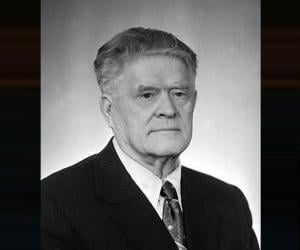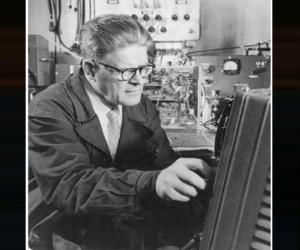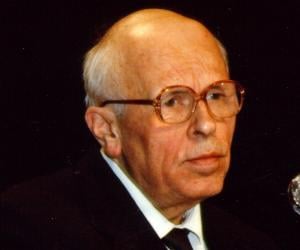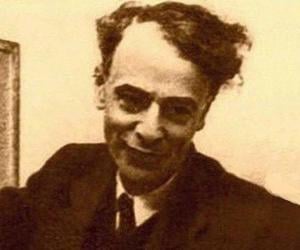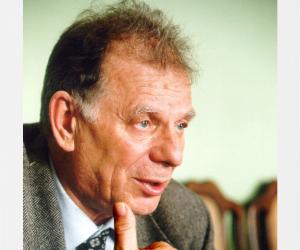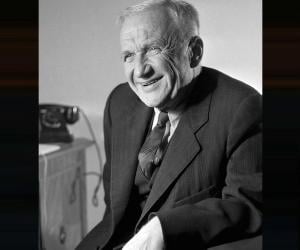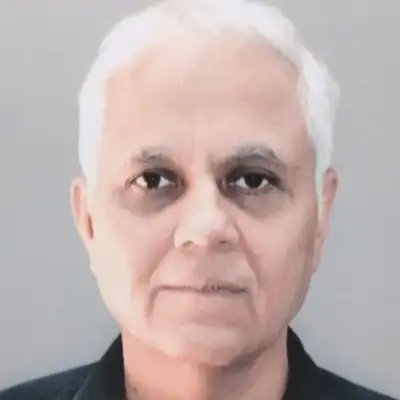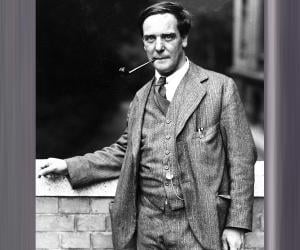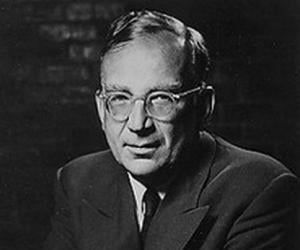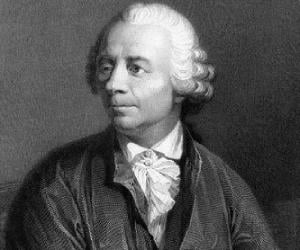Childhood & Early Life
He was born on July 28, 1904, in the village of Novaya Chigla in southern Russia, to Alexey Cherenkov and Mariya Cherenkova. His parents were peasants.
He lost his mother at around two years of age following which his father remarried. He was raised in poverty along with eight siblings and the impoverished condition of the family led him to take up a manual labour job at thirteen years of age with only two years of elementary education.
Following the Bolshevik Revolution (November 7-8, 1917) and the subsequent civil war, his village got a new Soviet secondary school in 1920, which gave him the opportunity to restart his studies. Side-by-side he occasionally worked at a grocery store to earn a living.
The radical reforms undertaken by the Bolshevik government with regard to the educational system, especially the opportunities made available for the downtrodden students, allowed him to enrol at the ‘Voronezh State University’ without finishing secondary education. He studied in the Department of Physics and Mathematics at the university and completed his graduation in 1928.
Thereafter he started teaching mathematics and physics in an evening school for labourers in the small town of Kozlov (presently Michurinsk) in the Tambov province.
Continue Reading Below
Career
In 1930 he was inducted as a senior researcher in ‘Lebedev Physical Institute’ (commonly abbreviated as ‘FIAN’), of the ‘Russian Academy of Sciences’, Moscow, one of the oldest research institutes in Russia.
There he was assigned by S.I. Vavilov to examine the result of exciting luminescent solutions of uranium salts, not by ordinary light as commonly applied, but by more energetic gamma rays from a radioactive point of supply.
Cherenkov observed a new phenomenon, which differed from that of luminescence, that a faint blue light is produced by gamma rays in generally non-luminescent pure solvents like water and sulphuric acid. His observation in 1934 of the unique form of electromagnetic radiation where he discovered that blue light is being emitted when charged particles like electrons travel with high velocity, faster than light, through a particular medium, proved to be of immense significance for further researches in the fields of cosmic rays and nuclear physics.
Eventually further characteristics of this new form of electromagnetic radiation were unearthed by him that included its particular anisotropy. This aided other theoreticians of ‘FIAN’ namely Ilya Mikhailovich Frank and Igor Yevgenyevich Tamm to elucidate in 1937 the real cause of such phenomenon, which was epithet as the ‘Cherenkov effect’ or ‘Cherenkov radiation’ also called the ‘Vavilov–Cherenkov radiation’.
Not only electrons but any electrically charged particles can generate the effect provided they transmit through a medium with high velocity.
In 1934 he took part in the Elbrus expedition of ‘FIAN’ which set up the Soviet’s first ever high-altitude cosmic ray station on the Caucasus Mountains. The new phenomenon of cosmic ray showers in the atmosphere was examined by him. His further studies in cosmic rays saw him constructing the Wilson chamber detectors during the 1940s for the cosmic rays expedition and station on the Pamir Mountains.
In 1940 he earned the degree of Doctor of Physico-Mathematical Sciences.
In 1944 he became a member of the ‘Communist Party of the Soviet Union’ and remained dedicated to the party throughout his life.
In course of time the Cherenkov counter or the Cherenkov detector was designed. It is a particle detector that has become a classic device in the field of particle and nuclear physics for observing the presence and velocity of particles that can move in high speed. The detector was installed in the Soviet research satellite ‘Sputnik 3’ on May 15, 1958.
Continue Reading Below
During 1946 to 1958 he was involved in assisting Vladimir Iosifovich Veksler to design new forms of particle accelerators like the synchrotron – a gigantic machine around the size of a soccer ground that is used in electron acceleration nearly matching up to the speed of light, in 1947; and Soviet’s first betatron – a device to accelerate electrons through magnetic induction in a circular path, in 1948.
He was among the prime contributors of the even larger 250 MeV synchrotron of the ‘FIAN’ that began to operate in 1951 and for which he and Veksler were awarded the ‘Stalin Prize’ that year.
From 1951 to 1977 he remained associated with the ‘Moscow Institute of Physical Engineers’ (MIFI) as a professor.
Cherenkov became Professor of Experimental Physics in ‘FIAN’ in 1953.
From 1959 he led the photo-meson processes laboratory of ‘FIAN’ that investigated on the way photons interact with nucleons and mesons. Such investigations garnered recognition and fetched him the ‘USSR State Prize’ in 1977.
He was elected as a corresponding member of the prestigious ‘USSR Academy of Sciences’ in 1964 and thereafter a full member or Academician in1970.
During the 1970s he aided in designing and organising a new acceleration lab in Troitsk, near Moscow, that consisted of a 1.2 Gev synchrotron.
He was elected as a foreign member of the US ‘National Academy of Sciences’ in 1985.
He represented the Soviet Union globally in platforms like the Pugwash Conferences on Science and World Affairs, the Soviet Organization for Security and Co-operation in Europe Committee and the Soviet Peace Committee.
He continued with his research work in ‘FIAN’ approximately till his death.
Personal Life & Legacy
He married Maria Putintseva in 1930. She was the daughter of A.M. Putintsev, a Professor of Russian Literature.
The couple was blessed with a son Alexey and a daughter Yelena, both of whom became scientists.
On January 6, 1990, he passed away at the age of 85 years in Moscow and was buried in the cemetery of the city, the ‘Novodevichy Cemetery’.
